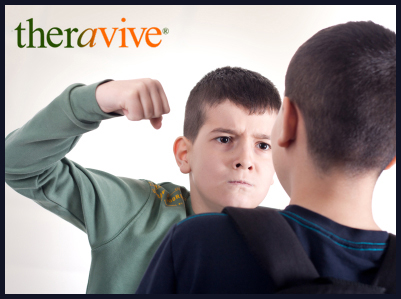 Bullying is something that has been in the news a lot more often as of late. With the internet, it has become much more difficult for us to figure out whether or not our child(ren) are getting bullied at school or on the internet. So what can we do in order to make sure that our children are kept safe? How can we help our children to learn that they are worthwhile so that they can live the lives that they deserve to have?
Bullying is something that has been in the news a lot more often as of late. With the internet, it has become much more difficult for us to figure out whether or not our child(ren) are getting bullied at school or on the internet. So what can we do in order to make sure that our children are kept safe? How can we help our children to learn that they are worthwhile so that they can live the lives that they deserve to have?
The good news is that bullying is also in the limelight more. More people are getting involved in the fight against bullying, including those who are in the spotlight of pop culture. A number of celebrities of all sorts (television, online, etc) have become involved with the fight and it really is starting to make a difference. With anti-bullying organizations being built up every year, we are looking at a future where bullying is less tolerated - at least, that's what we're hoping for in the long run. In today's article, we're going to take a closer look at bullying, how we can join the fight against bullying, and understanding how we can find out if a child is getting bullied.
How Do I know if My Child is Getting Bullied?
This is probably the most difficult question to ask, because no two children are going to react to bullying in the same exact way. That, of course, makes it hard for us to see whether or not they're being bullied or if there is something going on with their mental or emotional health. Obviously, they can go hand in hand, but sometimes you will get one thing without the other. So, in this section, we're just going to look at some of the most common things that you may see if your child is being bullied at school or in whatever other environment that they may be in on a regular basis.
They are afraid to go to the place in question, and will show signs of anxiety when they have to go. This is probably the most obvious sign that children deal with when they are being bullied. They become afraid of the places that are supposed to feel safe to them. There's a difference between "I don't feel like going" and "I'm going to have a nervous breakdown if you make me go." They may cry, or go to the nurses office while they're at school, or do other things in order to avoid going to the place in question. This constant fear is a big warning sign, and even though it may not be caused by bullying, it can still signify that there are mental health issues going on. I had a family member who had anxiety issues and couldn't go to school without becoming really upset at times, so we ended up having to send him to cyber school for his senior year - he wasn't being bullied, but he was struggling with social anxiety. Keep an eye on those times when your child's behavior changes unexpectedly.
They are having trouble sleeping or they are having bad dreams on a regular basis. This can happen if you're a child or an adult, but if your child is being bullied, sleep is probably going to allude them - or, in some cases, you may find that they are sleeping more often than usual because sleep feels "safer" than doing other things in their lives. If they seem to be "off" when it comes to their sleeping habits, you will want to check out what is going on. Like I said above, this could be a sign of issues related to other mental health issues, but it can be a surefire sign that bullying may be going on in their life as well.
They seem as if they are unable to cope with everyday life, and will act depressed or their emotions will be out of control ("They aren't themselves"). Sometimes, if a child is being bullied, they act a lot differently than they did before the bullying started. A child that is normally fairly chill is a lot more uptight for no reason. A child that is normally quite open and honest may become quiet and start to lie about certain situations that are going on in their lives. Talkative children may become a lot less willing to speak up... well, really at any time. If your child's mood and personality seem to change without any warning, and it changes to something that just feels really wrong, you may want to consider what may be going on in their lives, especially if you suspect that there is bullying going on.
They avoid talking about what happens at school, the daycare, or wherever the bullying problem may be. This is a sure sign that negative things may be going on as well. Why? Mainly because, if they don't have to talk about it, they don't have to remember it and they don't have to tell you about it. So they will answer questions with short responses. "How was your day?" "Fine." Or, they may just tell you a few things but won't answer questions about the people that they are interacting with and such. This avoidant behavior can be hard to spot at first, but as time goes on, you will likely have a better understanding of what may be going on, and you will be better prepared to deal with them in a healthy manner. It takes time and patience, but if you listen to things that your child isn't saying, you may start to notice some of the issues that are coming up in the process.
Eating habits change unexpectedly (they may not be eating enough, or they may be sneaking food and overeating when you are not looking). This is something that is a sign of many things, including depression and anxiety, but for the most part you will find that if a child is being bullied, they will be less willing to eat the way that they have normally eaten. In short, it's really hard for people to get a grip on good habits if they feel like they are being harmed or oppressed in some way, because self care kind of goes on the back burner at that point in time. So if you notice that your child's eating habits are changing drastically and quickly, then you may want to try and see what is going on in the rest of their life - it may be a bigger deal than you realize, and it may become more harmful for their health if you don't go after the issue now.
So, as you can see, there are a lot of things that can indicate that bullying is a potential issue for your child. Even though these symptoms may overlap with the symptoms of other problems that are out there in terms of mental health, It's better to be safe than sorry, however, so you want to make sure that you get a grip on what is going on in your child's life as early as you possibly can. That way, you can help them receive the help that they need and teach them how to find the appropriate resources for their problems.
 What Do I Do if my Child is Getting Bullied?
What Do I Do if my Child is Getting Bullied?
This, of course, is the question. Once we've determined that our child is being bullied by other people, what in the world are we really going to do about it? Can we do anything? Or do we have to sit back and watch as our child suffers from the abuse that they're receiving from other people? It's a really hard thing to figure out how to take care of, but there are a number of things that you, as a parent, can do in order to make sure that your child receives the help that they need and so that they feel safe again.
Teach your child how to stand up for themselves in a loving and respectful manner. This can be really hard to do, especially if your child is afraid to stand up for themselves in any sort of way. But teaching your children how to be assertive (without being aggressive) can play a large role in helping them to get through to the bully. Don't encourage them to "fight back," but instead encourage them to stand up for what is right and to be ready to move forward with whatever they need in order to feel safe and loved.
Schedule time with teachers (or whatever authority figures may be involved in the environment that your child is in) to talk about what is going on. Communication is absolutely key in these sorts of situations. Make sure that you talk to the authority figures in question in order to make sure that your child is being loved and protected appropriately. This can be hard, because your child may worry about being a "tattle tale" (in my day, they called it a "narc"), but you need to let them know that this just isn't the case. The authority figures at school or wherever the incident is happening need to know that it is happening, because otherwise, they may not even notice what is going on. If you point it out, they're going to be more likely to stop it when they see it, and they can help your child feel safer.
Let your child know that they are valued and loved, and that you have their best interests in mind. This can be hard as well, because many of us will say that we do this already. The issue is that when a child is being bullied on a regular basis, the voice of the person who is bullying them will often drown out your own. Give your child the time that they need in order to feel loved and cared for, and make sure that they are able to talk about their feelings when they are afraid. Also, make sure that your child's friends are in on this as well - their encouragement does as much (and sometimes more) than what you can in the midst of a bullying situation.
If the bullying becomes a dire enough threat that other action must be taken, be ready to take that action in an assertive manner as quickly as possible. This is scary, but sometimes, bullying goes over the edge. Because of that, we have to be willing to take the hard steps. If violence occurs, you have to be ready to get the authorities in on what is going on. If the bullying is making it hard for your child to get through their schooling, be willing to take them out or transfer them. Get parents involved if need be. Sometimes, there are hard steps that you have to take, and those in authority will help you find the right steps to take so that the bullying will lessen and your child will be able to feel safe in the environment.
Bullying is a big deal, and a lot of people, both children and adults, have been looking for ways to stop this horrible thing from happening. Children need our help with this fight more than they ever have before, and we are in a place where we can help them. If your child is dealing with bullying, and it has started to negatively affect their lives, you may want to consider getting them into a counseling program or in group support that can help them realize that they are not alone. You can be a huge help to them, but nothing is better than the help of professionals that know how to work with kids who are struggling with bullying. So make sure that you check out all of the resources that we have here on the website, We can help you find the right therapist for you or your child's particular needs and help you get started on the journey to wholeness. You don't have to walk this road alone; find the help that you need today by using all of our interactive tools here on the website.
_________________________________________________________________________________________________________________________________
Borba, M. (2012, March 6). 19 Signs Your Child Is Being Bullied and What to Do about It. Retrieved August 7, 2014, from http://info.character.org/blog/bid/128143/19-Signs-Your-Child-Is-Being-Bullied-and-What-to-Do-about-It
NewsCore. (2012, March 13). What to do when your child is being bullied. Retrieved August 7, 2014, from http://www.foxnews.com/health/2012/03/13/what-to-do-when-your-child-is-being-bullied/
STOMP Out Bullying. (2007). What To Do If Your Child Is Being Bullied And Resources. Retrieved August 7, 2014, from http://www.stompoutbullying.org/index.php/information-and-resources/parents-page/what-do-if-your-child-being-bullied-and-resources/
U.S. Department of Health & Human Services. (2014). Respond to Bullying. Retrieved August 7, 2014, from http://www.stopbullying.gov/respond/
Wilkins, E. (n.d.). My Child is Being Bullied - What Should I Do? Retrieved August 10, 2014, from http://www.empoweringparents.com/My-Child-is-Being-Bullied.php
About the Author
 Marti Wormuth, MA
Marti Wormuth, MAMarti has a Bachelor’s Degree in Sociology and a Master’s in Communication Studies. Her favorite activities include reading, playing games, and hanging out with the students at her church. Marti volunteers with the youth ministry at her church as a teacher and mentor. Because of this, she recently started another degree, her graduate certificate in student ministries. She considers her current graduate work to be a stepping stone to becoming a youth pastor or a published author.
Professional Website:
martis-miscellany.com/